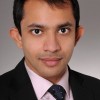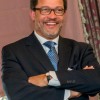Why are so many Westerners joining terrorist groups?
What is driving so many young Westerners to commit or sympathize with appalling acts of terror in Paris, London, Madrid and the Middle East?

Is this caused by generational estrangement or poverty or new forms of criminal-gang behavior, or is it the result of the conflicts caused at home by foreign policy? If some young Europeans are rejecting Western values, what exactly do those values stand for today? In other words ‘Why do they hate us?’ and ‘who are we?’ To what extent is this a problem specific to young Muslims? Are radical preachers of hate the real problem: ‘grooming’ and ‘brainwashing’ young people on the internet in their bedrooms or in person in mosques and prisons? What role have multiculturalist policies played in creating divisive and separate cultural identities? Why has the Western democratic way of life failed to inspire so many young people? This salon will also discuss the efficacy of different proposals to counter the threats we face.
Recommended reading:
-
Islamic radicalisation: what’s the cure?
By Veronica DeVore in SwissInfo (March 7)
Adam Deen and Prem Mahadevan know what they’re talking about when it comes to jihadi terror networks. One used to be an Islamist extremist, and the other advises governments on the inner workings of groups like ISIS. Here’s what they think works – and doesn’t – to stop terror recruitment. -
Anyone who thinks Westerners are flocking to Isil because of the Iraq war is a fantasist
Dr Azeem Ibrahim, The Daily Telegraph (18.02.16)
I will start by stating the obvious: Western foreign policy in the Middle East has been hugely dysfunctional, and very frequently responsible for very damaging outcomes. The Iraq War is the paradigm example, but this is something that stretches back an entire century. Yet the notion that people both in the Middle East and in the West get radicalised in response to Western interventions in the Muslim world is nonsense. -
Von der Gartenstadt zum «Terrornest»
Christian Weisflog, NZZ (18.2.2016)
Der harte Kern der Dinslakener Terrorzelle ist weg, aber die Brandstifter und der Nährboden sind geblieben. Immer noch wollen Jugendliche nach Syrien in den Jihad reisen.
-
«Der Islamismus entsteht auch in Brüssel, Berlin oder Winterthur»
Ahmad Mansour
Es war ein ungewöhnliches Bild für einen Abendanlass der Volkshochschule Winterthur und Umgebung. Mehrere Personenschützer, darunter auch Berliner Polizeibeamte, inspizierten kurz vor halb acht Uhr gestern Abend den grossen Saal der Alten Kaserne, positionierten sich strategisch im Raum und blieben auch die folgenden eineinhalb Stunden äusserst wachsam. Immer im Blick hatten sie ihr Schutzobjekt hinter dem Rednerpult, den Berliner Psychologen und Jihad-Experten Ahmad Mansour. -
Winterthur at centre of Swiss jihadi fighter claims
Swiss Ino
The city of Winterthur, north of Zurich, is in the headlines again as a place where young Muslims are being radicalised. The latest unconfirmed report says an Islamic State cell operates out of a mosque in the city. -
Terrorism has come about in assimilationist France and also in multicultural Britain. Why is that?
Kenan Malik
There are aspects of both the multiculturalist and assimilationist approaches that are valuable. The multicultural acceptance of diversity and the assimilationist resolve to treat everyone as citizens, not as bearers of specific racial or cultural histories, are both welcome. And there are aspects of both that are damaging – the multiculturalist tendency to place minorities into ethnic and cultural boxes, the assimilationist attempt to create a common identity by institutionalising the differences of groups deemed not to belong. -
Do not blame Islam for terrorism, says Obama
Dawn
WASHINGTON: US President Barack Obama warned Americans on Saturday that they would be playing right into the hands of extremists if they blamed Islam for recent terrorist attacks. In a radio address to the nation, President Obama reminded US citizens it were groups like the militant Islamic State (IS) who were depicting the fight against terrorism as a war between Islam and the West. -
It’s not the religion that creates terrorists, it’s the politics
Giles Fraser in The Guardian
The word “radical” has always been an overly capacious term, easily filled with whatever meaning the speaker wants to pour into it. There is the radical right, the radical left, even the radical centre, whatever that means. ...British Islamic State fighters in Syria.... ‘We buy into the radicalisation hypothesis because we want evil to be mysterious and other; something that has nothing to do with us.’ -
Paris attacks: UN official blames U.S., West & Israel
UN Watch
Paris attacks: UN official blames U.S., West & Israel; “They came to us because we went to them”...De Zayas argues that “terrorism, albeit neither justified nor justifiable, is partly a response to grave injustices and on-going abuses perpetrated by the dominant, primarily developed countries, against populations of less developed countries.”
Beyond his litany of alleged abuses by Western, former colonialist powers, De Zayas points the finger at “old religious tensions and conflicts” between “Israeli settlers and Palestinian populations,” and twice invokes “Gaza” as well as “occupation.” -
Tackling militant Islamism means also confronting its non-violent forms
Elham Manea
The call is often from a worried teacher. They are noticing changes in students from immigrant backgrounds. Before, they defined themselves by nationality, as Kosovars, Bosnians or Turks, now they say they are Muslims. Before, they took part in art classes, now they insist their religion prohibits art. Then there’s a second change: these young men and women start to talk of a war against Islam that targets Muslims – targets them. -
Exploding the myth of radicalisation
Frank Furedi
Blaming some young Brits' attraction to ISIS on online grooming is a fudge. Reports that three sisters from Bradford and their nine children are on their way to Syria show that British Muslims inspired to make the journey potentially to join the Islamic State are no longer unusual or unique individuals. Likewise, the response to the reports shows how bewildered and confused many now are when confronted with the so-called radicalisation of fellow members of society. -
Blame Western Powers For Terrorism In Middle East, Not Islam: Expert
Terrorism is more a political issue than a religious one, says one terrorism expert. According to New Zealand terrorism expert Richard Jackson, terrorism subsides when people listen to the grievances of the terrorists. -
Misunderstanding the Meaning of Contemporary Terrorism
Bill Durodi
For security professionals, identifying the supposed 'risk-factors' that act as 'pathways to radicalisation', dominates their work. But how well do we understand these? And, has a particular way of framing contemporary acts of terror come to dominate, at the cost of failing to understand it at all and possibly even, making matters worse? The recent police raid upon a house in east London suggests the authorities to be preoccupied by the possibility of a global terrorist conspiracy, inspired by an evil, foreign ideology and determined to acquire and deploy weapons of mass destruction. Yet, there is very little evidence for this. -
Ban hate preachers on campus
The Daily Mail
Education Secretary Nicky Morgan Tuesday condemns universities for allowing terrorist apologists to peddle hatred on campus while restricting legitimate free speech. Announcing a series of moves designed to prevent children from being turned into fanatics, Mrs Morgan attacks groups like Cage which ‘indoctrinate, instruct and inspire hate’ and try to ‘close and narrow young minds’.
-
Why won’t we tell students that Kant is better than the Koran?
Brendan O'Neil
The problem on campus isn’t hate preaching — it’s academic cowardice. Following the unmasking of Jihadi John as Mohammed Emwazi, a London-raised computer-studies graduate of the University of Westminster, there’s been a lot of media heat over the problem of campus radicalism. How did universities become breeding grounds for beheaders, ask startled observers, allegedly turning students into aspiring martyrs dreaming of spilling infidel blood and getting it on with 72 virgins? Universities are supposed to enlighten youngsters, not turn them into medieval decapitators. The Uni-panickers, including David Cameron, are now suggesting that we should ban from campuses so-called hate preachers, those finger-wagging dispensers of Islamist dimwittery, in order to prevent impressionable minds from being twisted beyond repair. -
More entry bans imposed against radicalisation
Swiss Info
The Swiss government has authorised a number of entry bans on radicalised non-Swiss citizens in order to limit extremist groups who promote their ideas on Swiss streets. “Because of a threat to domestic security, since the beginning of December we have imposed 14 entry bans on jihad-motivated travellers and so-called hate preachers at the request of the intelligence services,” said Nicoletta della Valle, director of the Federal Office of Police. -
Ideological connections between gangs and terrorists
Corrections.com
Gangs, like a wide variety of criminals, feel a sense of disconnection with mainstream American society. This disconnection manifests itself in anti-social behavior and rationalization of criminal acts against non-gang members and rival gang members. As with members of terrorist groups, these gangs see outsiders as a steady supply of victims, or as collateral damage. Islamic radical terrorists view non-believers as infidels and justify their killing as a way of getting their views across and getting through to their enemies. Many gangs in the United States share the same ideology as terrorists, foreign and domestic.



